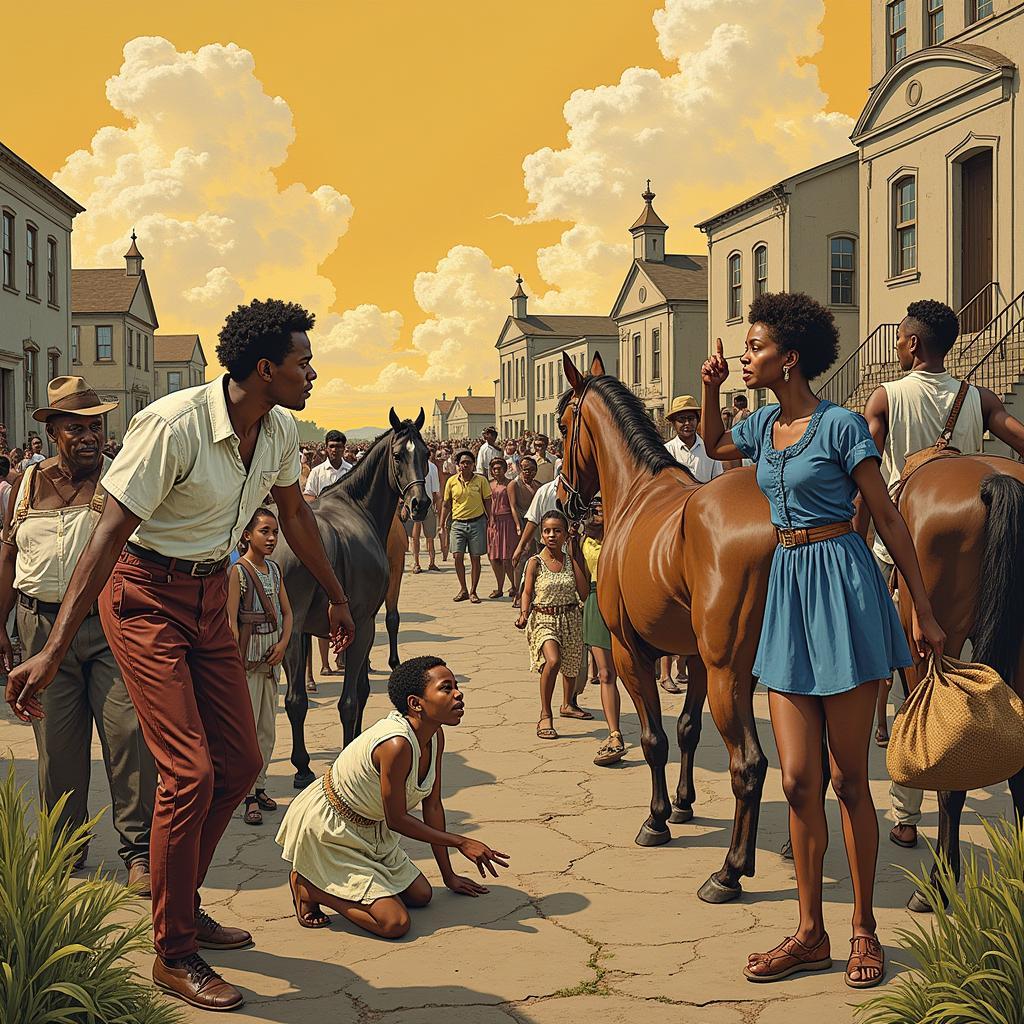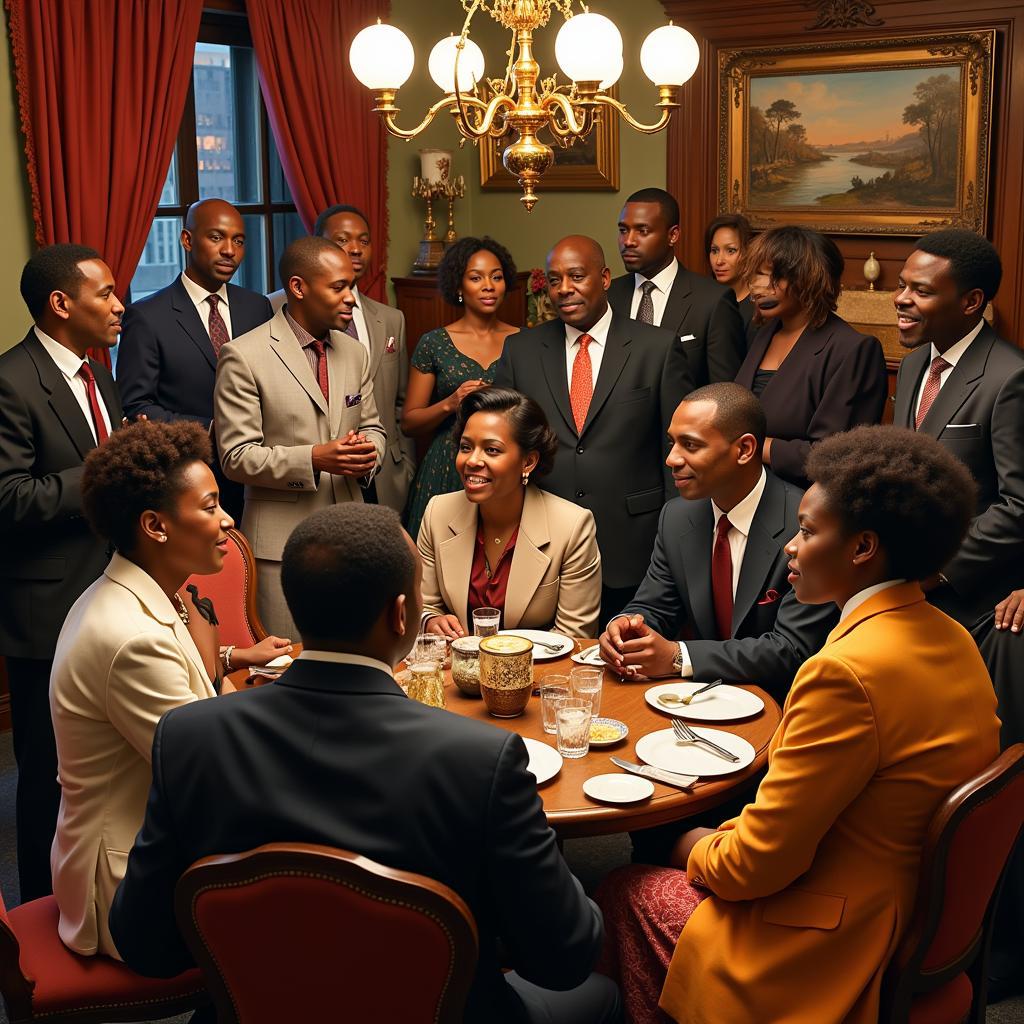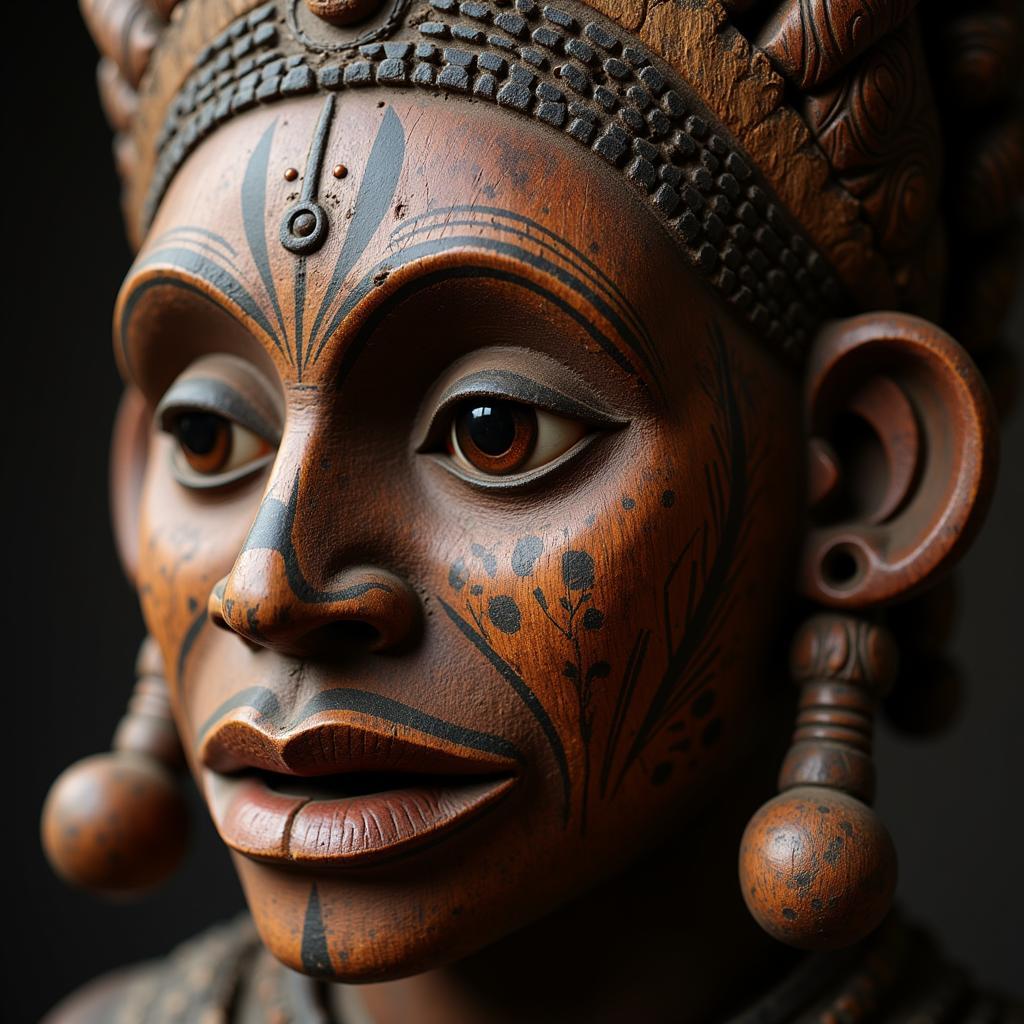A Timeline of African American Fiction: Exploring Literary Legacies
African American fiction boasts a rich and complex history, offering a powerful lens through which to understand the African American experience. This “African American Fiction Timeline” explores key milestones, highlighting the evolution of literary voices and themes across centuries. From the antebellum era to contemporary works, this journey through literary history reveals the enduring power of storytelling.
Early Voices and the Fight for Freedom (18th-19th Century)
 Early African American Fiction Depicting Abolitionist Themes
Early African American Fiction Depicting Abolitionist Themes
The 19th century witnessed the rise of early African American fiction, often intertwined with the abolitionist movement. Works like Clotel; or, The President’s Daughter (1853) by William Wells Brown, considered the first novel by an African American author, exposed the horrors of slavery and advocated for freedom. These early narratives laid the groundwork for future generations of writers. As a starting point, you can find valuable resources like a 19th century african american literature syllabus online to deepen your understanding of this era.
The Harlem Renaissance: A Flourishing of Creativity
 Harlem Renaissance Literary Figures Gathering
Harlem Renaissance Literary Figures Gathering
The Harlem Renaissance of the 1920s and 1930s marked a pivotal moment in African American literary history. Authors like Zora Neale Hurston, Langston Hughes, and Claude McKay explored themes of identity, race, and the Black experience in America with unprecedented depth and nuance. Works like Their Eyes Were Watching God (1937) and Home to Harlem (1928) captured the vibrancy of Black culture and challenged prevailing stereotypes.
Post-War Voices and the Civil Rights Movement
The post-World War II era saw a surge in African American literature addressing the ongoing struggle for civil rights and equality. Authors like Richard Wright, James Baldwin, and Ralph Ellison explored the complexities of racism, identity, and the search for belonging in a deeply segregated society. Invisible Man (1952) and Go Tell It on the Mountain (1953) are powerful examples of this period’s literary landscape.
Exploring Identity and Challenging Norms
The late 20th and early 21st centuries saw a continued diversification of voices and themes within African American fiction. Authors like Toni Morrison, Alice Walker, and Octavia Butler broke new ground with their exploration of gender, sexuality, and Afrofuturism. Beloved (1987) and Kindred (1979) are just two examples of the groundbreaking works that emerged during this period. You might also be interested in exploring the world of african american romance novel publishers for a different perspective within the genre.
The Future of African American Fiction
African American fiction continues to evolve, with new voices and perspectives constantly emerging. Contemporary authors are pushing boundaries and exploring new genres, ensuring that the rich tapestry of African American storytelling continues to thrive. Discovering an african american female chemist is just one example of the inspiring stories being told today. You can also explore resources like an african american history calendar to gain a broader understanding of the context within which these stories are created. For younger readers, incorporating african american studies elementary school can be a great starting point.
Conclusion
This “african american fiction timeline” provides a glimpse into the vast and dynamic landscape of African American literature. From the earliest narratives to contemporary works, these stories offer profound insights into the African American experience and continue to shape our understanding of identity, race, and the power of storytelling.
FAQ
- What is considered the first novel written by an African American? (Clotel by William Wells Brown)
- Who are some key figures of the Harlem Renaissance? (Zora Neale Hurston, Langston Hughes, Claude McKay)
- What are some common themes explored in African American fiction? (Race, identity, social justice, family, love, loss)
- How has African American fiction evolved over time? (From focusing primarily on slavery and freedom to exploring a wider range of themes and genres)
- Where can I find more resources on African American literature? (Libraries, online databases, academic journals)
- Why is it important to study African American fiction? (To gain a deeper understanding of African American history, culture, and perspectives)
- How can I support contemporary African American authors? (By buying and reading their books, attending literary events, and recommending their work to others)
For further assistance, please contact us at Phone Number: +255768904061, Email: kaka.mag@gmail.com or visit our address: Mbarali DC Mawindi, Kangaga, Tanzania. We have a 24/7 customer service team ready to help.


